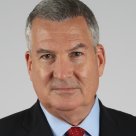The Trudeau government has told the Saskatchewan Court of Appeal it should not grant intervenor status to Jason Kenney’s United Conservative Party and should reject an affidavit from the Canadian Taxpayers Federation in a key test case on the constitutional right of the federal government to impose a national carbon tax.

The brief, submitted to the court Wednesday by federal lawyers, argues that the Saskatchewan court should reject a request from the UCP to be an intervenor because its contribution would be “political and speculative.” It says the court should similarly reject an affidavit from the CTF because the it “has not established any special expertise in general economics or the economics of carbon pricing.”
Both Saskatchewan and Ontario have challenged the federal government’s legal authority to impose a carbon price on provinces through the Greenhouse Gas Pollution Pricing Act. Ottawa plans on imposing a carbon tax in January on jurisdictions that don’t have a climate plan that meets its standards. Those jurisdictions include Saskatchewan, Manitoba and Ontario.
The case before the Saskatchewan Court of Appeal was brought by the government of Saskatchewan Premier Scott Moe, which opposes any carbon tax. Moe has been joined by the governments of Ontario Premier Doug Ford, Manitoba Premier Brian Pallister and New Brunswick Premier Blaine Higgs in opposition to the federal carbon pricing plan.
The federal government has consented to requests by eight other organizations to have intervenor status in the Saskatchewan case. They are:
- Saskatchewan Power Corporation and SaskEnergy Inc.
- Athabasca Chipewyan First Nation
- Canadian Environmental Law Association/Environmental Defence Canada
- Canadian Public Health Association
- David Suzuki Foundation
- Ecofiscal Commission
- Intergenerational Climate Coalition
- International Emissions Trading Association
The Saskatchewan case is expected to be heard beginning Feb. 13 while a similar legal challenge brought by Ford’s government in Ontario case is expected to be heard in April 2019.
WATCH: The Trudeau government does not want Alberta’s United Conservative Party to participate in the carbon tax hearings.

The Alberta government of Rachel Notley has not asked for intervenor status in the case and that drew the ire of Kenney, the leader of Alberta’s official opposition.
“The UCP is stepping up and seeking to intervene because the current Alberta Government refuses to do so,” Kenney said in a statement e-mailed to Global News. “It’s telling that the Trudeau Government is happy with foreign-funded groups like the David Suzuki Foundation and Environmental Defence fighting for a carbon tax in Canadian courts, but not the Official Opposition in Alberta that represents a significant number of Albertans.
Aaron Wudrick, the national director of the Canadian Taxpayers’ Federation which opposes a national carbon tax, says he was not surprised to see the federal government try to block his organization’s submission to the court.
The federal government also argues that the court in Saskatchewan should reject requests for intervenor status by the Agricultural Producers Association of Saskatchewan and the Assembly of First Nations. It says those groups “do not address the constitutional issues before the court.”








Comments